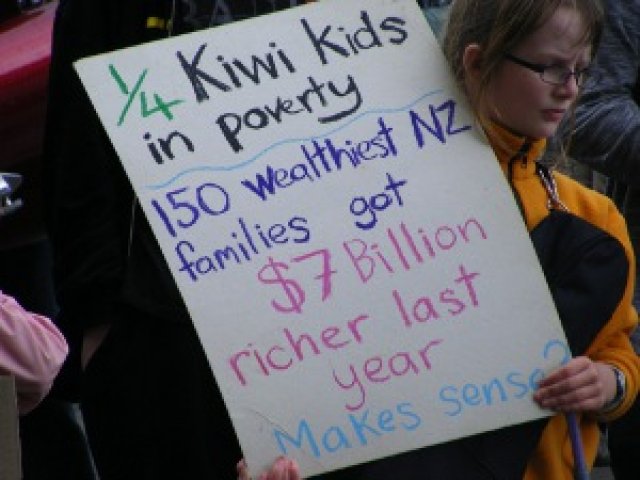
I was dismayed to discover that Australia’s Minister for Social Services is turning to New Zealand for inspiration in his latest approach to welfare.
On September 20 Christian Porter announced the ‘Australian Priority Investment Approach’. This draws on work New Zealand’s right-wing National government has done since 2011 on using actuarial estimates of fiscal liability to underpin an extensive program of punitive and pauperising reforms.
Australian media has lauded New Zealand’s minister for social welfare Paula Bennett, who has used her credentials as a sole parent to drive through the beneficiary-bashing changes. This brought back memories of an earlier generation of ex-ministers, such as Roger Douglas (Labour) and Ruth Richardson (National), who travelled the world evangelising NZ’s neoliberal revolution of the 1980s and ’90s.
How unfortunate for Australia that we seem to be providing the same service again.
In 2012, Paula Bennett estimated that the cost of the beneficiary population at that time was $78 billion. This was based on techniques more commonly used in the insurance industry to calculate liability for each existing claimant over their lifetime.
Unsurprisingly, she found that young people would cost the most, given their life expectations are the longest.
Porter has taken the same approach, targeting his reforms in the first instance at young parents, young carers and students.
The NZ government has introduced a range of reforms since 2012, with the overarching goal of getting at least 100,000 working-age beneficiaries out of the system within ten years. Some of the changes include:
- Introducing compulsory income management for young people on benefits, stripping them of autonomy and respect at a highly vulnerable time in their lives — inspired by Australia’s income management experience;
- Subjecting any woman on a benefit who has another child to work testing from the time her baby turns one;
- Further sanctions including drug testing some jobseekers and drastic cuts to sole parent benefits if work tests are not met;
- Encouraging women beneficiaries and their daughters of reproductive age to undergo long-lasting contraception;
- Replacing unemployment, sickness and sole parent benefits with one Jobseeker Support category, subject to a wide range of compulsory work tests and sanctions; and
- Introducing a Work Ability assessment, making many people who were formerly on a protected Invalids Benefit subject to worktesting — based on British sickness and disability reforms.
I am part of a group that carries out advocacy with and for unemployed people and beneficiaries, while fighting politically on an anti-capitalist program for decent work, a totally reformed welfare system, for recognition of the worth of unpaid work in home and community, and — eventually — for a progressive form of Universal Basic Income.
We see at first hand the impact of National’s reforms, all aimed at getting people out of the welfare system, no matter the human cost. These consequences include:
- Many people simply fail to register with Work and Income because of the hurdles placed in their way. Young people are particularly likely not to register, relying instead on family, friends, petty crime or scraps of work for survival;
- People who are sick, injured or living with disability, including those with long-term mental health issues, suffer hugely when forced to go through work testing and adverse medical assessments; and
- Many plunge into debt because of the combined effect of low benefit levels, sanctions and the impact of going in and out of the welfare system through being forced into precarious work.
Probably the worst effect is psychological. Our current welfare system depends on a culture of intimidation, punishment and the use of bureaucratic delay to do everything possible to keep people off benefits.
The human, economic, health and justice costs of an “investment approach” designed to save money are high and rising. There is no way a group like ours can hope to calculate the true fiscal impact which itself will extend generations into the future, but researchers are already starting to do work examining its flaws and inadequacies.
Sorry Australia — but be assured, our group stands in solidarity with all of you who are doing your utmost to expose and oppose the latest onslaught from your government, and all that came before.
[Sue Bradford is a former Green MP who currently co-chairs anti-capitalist jobs and welfare group Auckland Action Against Poverty and coordinates the development of New Zealand’s first radical left think tank Economic and Social Research Aotearoa. Contact: sue@esra.nz]
Like the article? Subscribe to Green Left now! You can also like us on Facebook and follow us on Twitter.